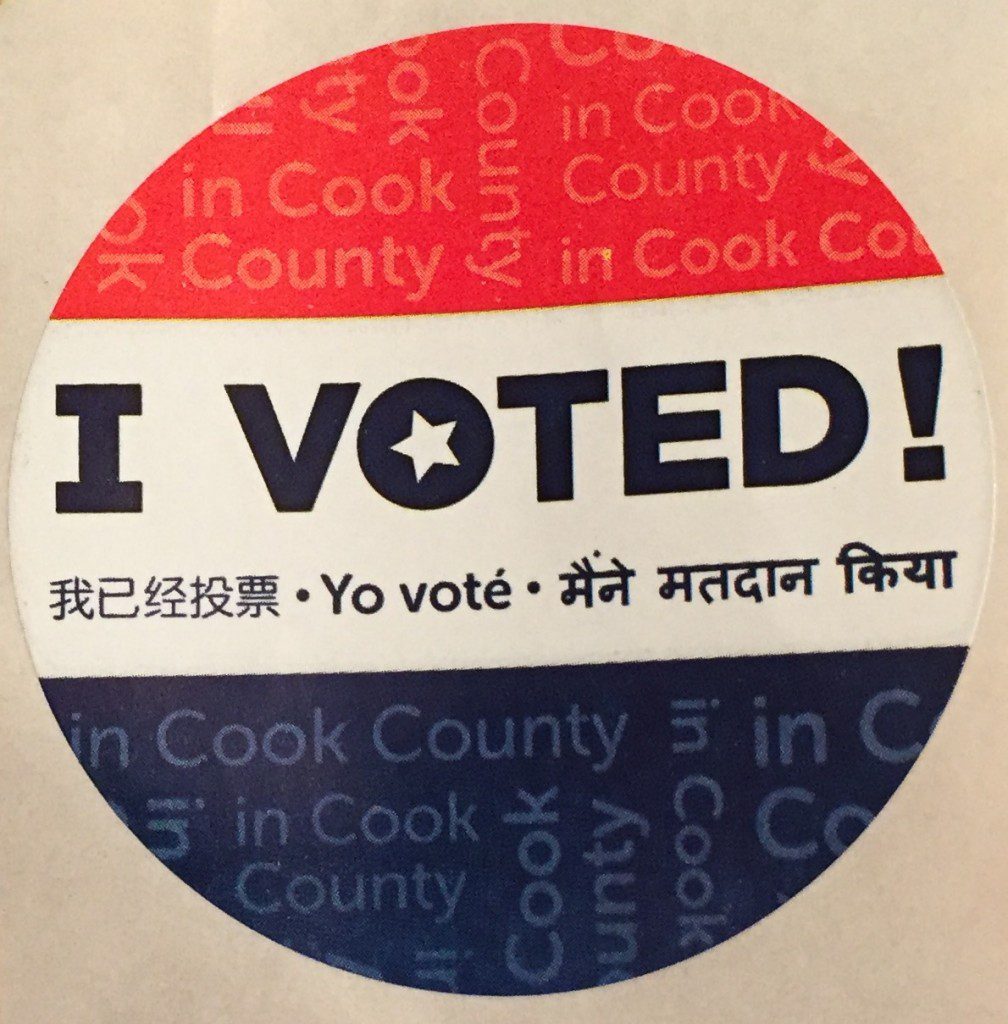
Here’s a sort of pre-Election Day post meant as a conversation-starter.
Consider the rhetoric you’ve heard lately: “our democracy is threatened by Trumpism.” Or by gerrymandering. Or tightening of voter ID regulations. Or lack thereof. Or by low turnout. Or too much turnout by voters who don’t understand the issues sufficiently well. Or too many white men. Or not enough white men.
But it occurs to me that when we speak of “democracy” we really mean much more than that. We have an ideal in which all Americans believe in equality, liberty, fair play, and, much more broadly, the ideal that we all care about the common good rather than just competing for the best possible arrangements for our own “tribe.” But, strictly speaking, it’s entirely possible to have a government which follows the democratic norm of allowing each individual to cast a vote, without an ideal, let alone real-world putting-into-practice, of common good-seeking or dreams or realities of equal treatment. All that’s needed is, indeed, for such a country to be heavily tribal and for people to vote with their tribe.
I’m thinking of this in light of the various people — celebrities, politicians, news personalities, etc. — urging everyone to vote. There was a tweet the other day purporting to share some wisdom on increasing voter turnout, which went something like this: “If you’re talking to someone who says they don’t know enough about the candidates to decide who to vote for, sometimes even just sharing one positive attribute about a candidate can be enough.” And I’m reminded of the time that, while I was voting, a clearly intellectually disabled man was accompanied by some sort of assistant and helped with voting. I couldn’t tell to what extent the “helper” was actually punching the chads or bubbling the circles, but my very strong impression was that the voter in question was voting as a ritual and a means of being able to participate in a Thing Adults Do.
There are reports, now and again, that candidates with “normal” names have an edge, that being first on the list of candidates helps, that there are, indeed, people who simply vote somewhat randomly in primaries or nonpartisan races. There are worries that the Nazi running as a Republican will get votes from straight-ticket voters who haven’t paid enough attention to the news to know that, indeed, he is a Nazi.
And I’m getting plenty of mailers in my mailbox (I sort of wish I had collected them until the election, so as to know what the final total will have been), which say one thing: either “vote against so-and-so because they’re prolife” (well, they don’t say, “prolife”; they want me to reject these candidates because they oppose abortion, but that’s what I see: “Oh, thank you for telling me who I support”) or “vote against so-and-so because we put his picture next to Trump’s and used the scary-filter.”
And earlier today I came across a report that the L.A. Times had two different sets of endorsements, one in its “regular” paper and the other, in which the endorsements were for Latinos, in its LA Times en Español, which contains translated L.A. Times content as well as additional articles on the Hispanic community.
It’s all based on the approach of “know your tribe, then vote for your tribe member.” Calling on people to vote, who haven’t otherwise taken the time to learn about the candidates and their positions, takes it for granted: if you’re blue collar, if you’re a racial or ethnic minority, of course, “your” party is the Democrats, so you need to pull that lever; if you’re middle or upper-middle class, or an Evangelical, your party is the Republicans. If you’re voting in a primary, say, for the mayor of Chicago, you just need to take a look at the skin color of the candidate and choose the one that matches yours. (Yes, folks, sorry, that’s how it works, or at least how it worked in the last election: there was indeed, in the primary, a Black candidate, a Hispanic candidate, and a White candidate, and I’m capitalizing the color-identifiers because they functioned very much as tribe-identifiers.)
And that’s just the US with our two-party system. In other countries, with multiparty systems, parties can be explicitly based on religion or ethnicity, with multiple parties coming together in a coalition to secure benefits for their groups.
And a system win which whites, blacks, people of Mexican origin, and other groups all jostled for their share of government spending would still be a democracy according to the narrow definition of “everyone gets to vote.” A system in which fundamentalist Muslims (or, yes, Christians) required women to cover themselves, or even which prohibited other religions, would still be a democracy if the law was passed by elected officials, no?
So what it boils down to is that what we want from our government and our society is much broader than just “democracy,” but we don’t really have a good way to express it. And I’ve kind of blathered a bit without really coming to any great insights, so I’ll conclude with my usual invitation to readers to discuss in the comments.












